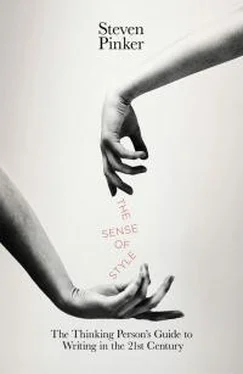The researchers found that groups that are typically associated with low alcoholism
levels
actually have moderate amounts of alcohol
intake
, yet still have low
levels
of high
intake
associated with alcoholism, such as Jews.
The researchers found that in groups with little alcoholism, such as Jews, people actually drink moderate amounts of alcohol, but few of them drink too much and become alcoholics.
I have serious doubts that trying to amend the Constitution would work on an actual
level
. On the aspirational
level
, however, a constitutional amendment
strategy
may be more valuable.
I doubt that trying to amend the Constitution would actually succeed, but it may be valuable to aspire to it.
Individuals with mental health
issues
can become dangerous. It is important to approach this subject from a variety of
strategies
, including mental health assistance but also from a law enforcement
perspective
.
People who are mentally ill can become dangerous. We need to consult mental health professionals, but we also may have to inform the police.
What are the
prospects
for reconciling a prejudice reduction
model
of change, designed to get people to like one another more, with a collective action
model
of change, designed to ignite struggles to achieve intergroup equality?
Should we try to change society by reducing prejudice, that is, by getting people to like one another? Or should we encourage disadvantaged groups to struggle for equality through collective action? Or can we do both?
Could you recognize a “level” or a “perspective” if you met one on the street? Could you point it out to someone else? What about an approach, an assumption, a concept, a condition, a context, a framework, an issue, a model, a process, a range, a role, a strategy, a tendency, or a variable? These are metaconcepts: concepts about concepts. They serve as a kind of packing material in which academics, bureaucrats, and corporate mouthpieces clad their subject matter. Only when the packaging is hacked away does the object come into view. The phrase on the aspirational level adds nothing to aspire, nor is a prejudice reduction model any more sophisticated than reducing prejudice. Recall that the winning sentence in the 1998 Bad Writing Contest consisted almost entirely of metaconcepts.
Together with verbal coffins like model and level in which writers entomb their actors and actions, the English language provides them with a dangerous weapon called nominalization: making something into a noun. The nominalization rule takes a perfectly spry verb and embalms it into a lifeless noun by adding a suffix like – ance, –ment, –ation, or – ing. Instead of affirming an idea, you effect its affirmation; rather than postponing something, you implement a postponement. The writing scholar Helen Sword calls them zombie nouns because they lumber across the scene without a conscious agent directing their motion. 21They can turn prose into a night of the living dead:
Prevention
of neurogenesis diminished social
avoidance
.
When we prevented neurogenesis, the mice no longer avoided other mice.
Participants read
assertions
whose
veracity
was either affirmed or denied by the subsequent
presentation
of an
assessment
word.
We presented participants with a sentence, followed by the word
TRUE
or
FALSE
.
Comprehension
checks were used as
exclusion
criteria.
We excluded people who failed to understand the instructions.
It may be that some missing genes are more
contributive
to the spatial deficit.
Perhaps some missing genes contribute to the spatial deficit.
The last example shows that verbs can be drained of life when they are turned into adjectives, too, as when contribute becomes contributive to or aspire becomes on the aspirational level. As this cartoon by Tom Toles suggests, zombie nouns and adjectives are one of the signatures of academese:

Toles © the Washington post. Reprinted with permission of Universal Uclick. All rights reserved.
Any interrogatory verbalizations? But it’s not just academics who loose these zombies on the world. In response to a hurricane which threatened the Republican National Convention in 2012, Florida governor Rick Scott told the press, “There is not any anticipation there will be a cancellation,” that is, he didn’t anticipate that he would have to cancel the convention. And in 2014 Secretary of State John Kerry announced, “The president is desirous of trying to see how we can make our efforts in order to find a way to facilitate,” to wit, the president wanted to help. Once again the professional habit has not gone unnoticed by satirists, such as in the MacNelly cartoon on the next page, which appeared when Alexander Haig, the notoriously creative suffixer who served as secretary of state in the Reagan administration, resigned from his post:

When a grammatical construction is associated with politicians you can be sure that it provides a way to evade responsibility. Zombie nouns, unlike the verbs whose bodies they snatched, can shamble around without subjects. That is what they have in common with the passive constructions that also bog down these examples, like was affirmed and were used. And in a third evasive maneuver, many students and politicians stay away from the pronouns I, me, and you . The social psychologist Gordon Allport called out these tactics in an “Epistle to Thesis Writers”:
Your anxiety and feeling of insecurity will tempt you to an excessive use of the passive voice:
On the basis of the analysis which was made of the data which were collected, it is suggested that the null hypothesis can be rejected.
Please, sir; I didn’t do it! It was done! Try to conquer your cowardice, and start your concluding chapter with the creative assertion: Lo! I found …
You may attempt to defend your enervating use of the passive voice by pointing out that the only alternative is excessive reliance upon the first person personal pronoun or upon the pontifical We. It is safer, you conclude, to choose self-effacement at this critical moment in your career. I reply: even in critical moments I see no harm in saying I if I mean I. 22
Often the pronouns I, me, and you are not just harmless but downright helpful. They simulate a conversation, as classic style recommends, and they are gifts to the memory-challenged reader. It takes a good deal of mental effort to keep track of a cast of characters identified as he s, she s, and they s. But unless one is in the throes of a meditative trance or an ecstatic rapture, one never loses track of oneself or of the person one is addressing ( I, we, you ). That’s why guidelines on how to avoid legalese and other turbid professional styles call for using first- and second-person pronouns, inverting passives into actives, and letting verbs be verbs rather than zombie nouns. Here are some examples of discouraged and recommended wordings from the Pennsylvania Plain Language Consumer Contract Act:
If the Buyer defaults and the Seller commences collection through an attorney, the Buyer will be liable for attorney’s fees.
Читать дальше














